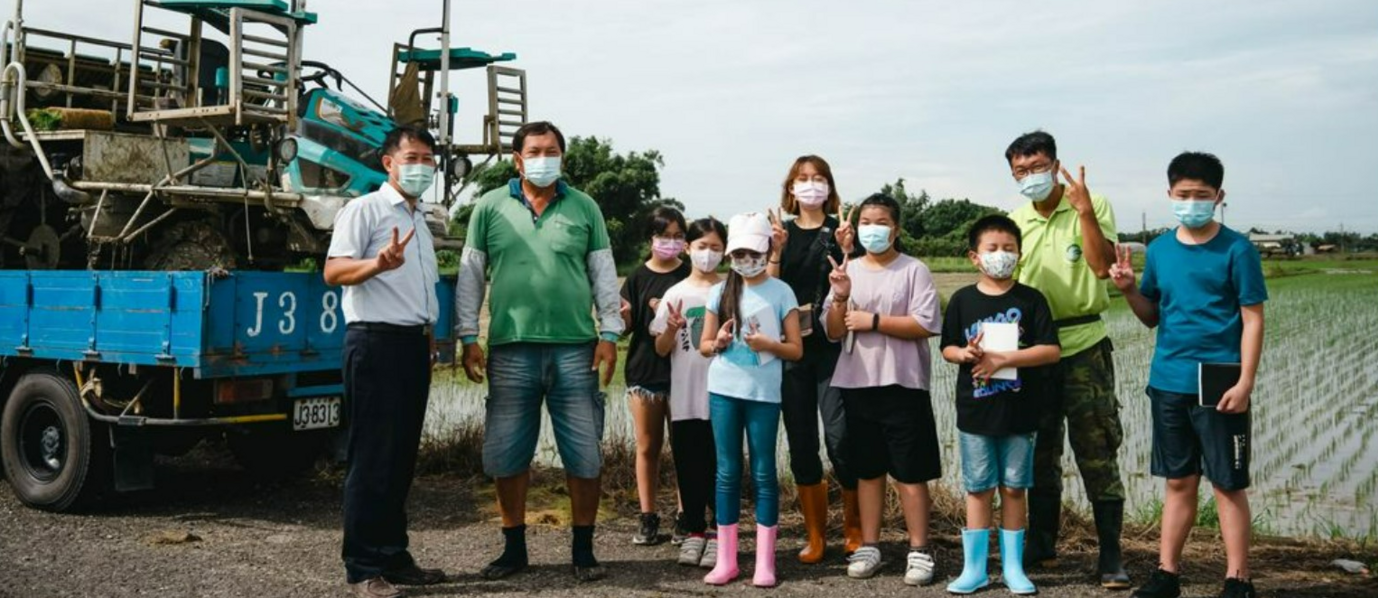Go together! 2026: Micro-Communities Network for Meaningful Aging Life


 Current LocationGo together! 2026: Micro-Communities Network for Meaningful Aging Life
Current LocationGo together! 2026: Micro-Communities Network for Meaningful Aging Life"When holding the sander, the elbows have to be in a triangular shape against the body and the body has to be positioned correctly to avoid injury.”
At the entrance of the Long Tian Community Care Center, the resident assistant, Mr. Yeh Jia-Cheng, guided the statistics students, who had never used woodworking machines before, to polish the community association’s mobile coffee cart. On the other side, Mr. Min-Chun, a teacher who lives nearby, appeared with a bag of drinks to ensure the students are properly hydrated. Poof, poof, poof, poof... Mr. Wen-Hsiung stopped by on his motorcycle to discuss the veneering of the wood with Mr. Jia-Cheng, and then went back to work.
Leveraging Expertise to Contribute to The Community For A Common Cause
"The initial motivation was just to do something for my hometown.” Tainan-born Jia-Cheng had already participated in the USR program when he was studying architecture for his master’s degree, and came to Guantian to conduct research on the site and transform the space. After graduation, he chose to stay in Guantian, unlike other students who chose to work in architectural firms, to continue the unfinished dream he had left behind during graduate school.
"I believe that architectural design should return to the lifestyle and preferences of the occupant user, rather than sitting in front of a picture and imagining the space and functions alone,” said Chia-Cheng. By leveraging his field experience for his master’s thesis, Chia-Cheng is strongly aware of the importance of 'users' in the architectural design process. From participating in community life, communicating with residents, and understanding their actual needs, to translating and working with them to turn their ideas into design details, step by step, he applied his architectural expertise in community practice. After the completion of the site, Chia-Cheng became even more attached to the community and has been able to help the community think outside the box, for example, by collaborating with the community on picnic activities. By transcending the perceived framework of limited space of the site and allowing more residents to engage in outdoor activities together or cultivating the elderly residents to develop their own interests and expertise, it has brought friends and family together, and allowed residents to show their self-confidence and sense of accomplishment in addition to their classes through joint community activities. The ideal building in Chia-Cheng’s heart is really built on the “brick and mortar” foundation of laughter, life. and memory.
From "Putting Expertise into Practice" to "Building Connections between Cross-Disciplinary Talent and Communities”
"We know Jia-Cheng likes to eat this, so we saved one for him in the fridge ......" Many of the elders in the community consider him to be their grandson and know exactly what he likes to eat. It is this mutual trust that makes Jia-Cheng such an important bridge between the school and the community. "Jia-Cheng, I'd like to share a class from the Institute of Gerontology on aging policy with Mr. Long-Tian, how do you suggest arranging it?” The Go together! 2026 Program is dedicated to working with the community to build a self-sustaining, co-learning and co-creation intergenerational micro-community as well as providing students with opportunities to participate in university teaching and research projects. Short-term courses require students to get to know the community in a short period of time without causing disruptions to the community. Long-term research requires students to move from unfamiliarity to participation and to conduct practical work and research, which requires the interdisciplinary learning and “profession conversion skills” of someone like Jia-Cheng. Sometimes, when students wanted to continue their involvement outside of the classroom, Jia-Cheng even took the initiative to lead the students by forming groups, and seeking resources, all to help the students achieve their dreams.
"It's good for us in Guantian to have young people like Jia-Cheng, or Ke-Wei and Yu-Rou, who are willing to work with the community. Young people like them can bring a lot of new stimulation and ideas to the local community,” remarked local teacher Mr. Min-Chun, who has been involved in the community for a long time, and is very supportive of the assistants and students in the USR program at National Cheng Kung University. "With their help, we can see the community growing step by step, and with students from other disciplines, there are more opportunities for the community to experiment. Unlike a typical school program where you come and go, what the students bring will make a difference to the community.” The Go together! 2026 USR Program at National Cheng Kung University is committed to developing a new type of work in the future ultra-high-age society, called a "Senior Living Planner", who will not only help local communities develop seniors’ lifestyles based on their preferences, but also build a bridge and platform for talent cultivation between the school and the field, a manifestation of the vision of sound social development as a part of Cheng Kung University's university social responsibility.